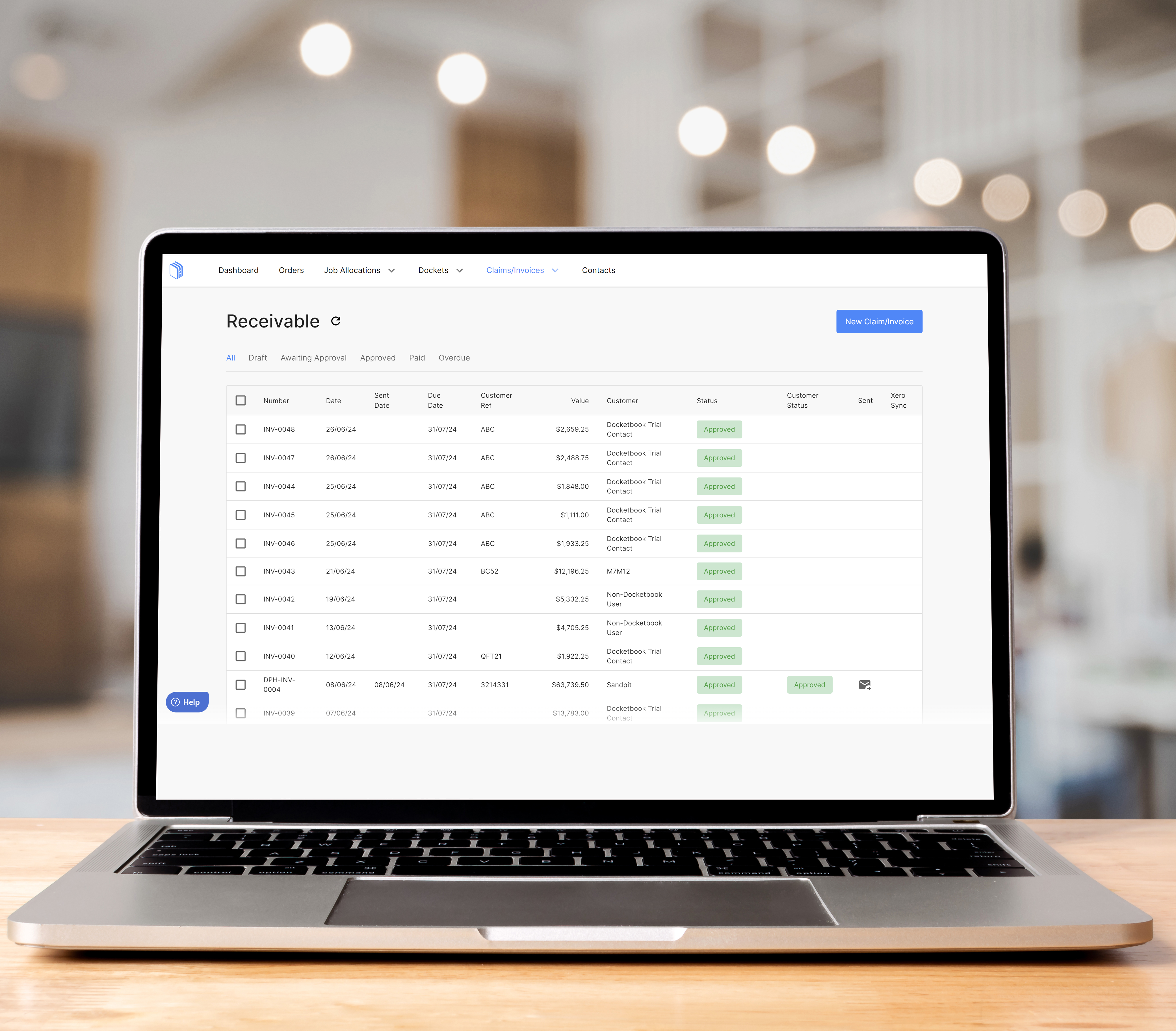Proof of Work Systems in Construction - Matching Orders, Invoices & Dockets
Introduction to Proof of Work Systems
A proof of work system is a piece of software that forms a consensus between multiple data points (i.e. an order, docket and invoice) to validate transactions occurring on job sites. In construction, it ensures the integrity and reliability of documentation and payments throughout the whole construction supply chain.
In order for construction to work efficiently, there needs to be a record of the gear, services or supply provided to any job site, in order for administrators to determine reliably that what was ordered occurred, and therefore, should be paid for. The process today is broken and is built on a laborious legacy system of paper dockets.
Right now - many construction companies are managing their proof of work flow with paper dockets. These dockets need to physically come back from the site into the head office, then they need to be matched to purchase orders (which are generated through accounting systems), reconciled to those purchase orders and then matched to a corresponding invoice. These documents are being sent to administrators through a range of unconnected systems and the process of reconciliation is fraught with difficulty and dispute.
If there is a single thing missing, then dockets and supplier invoices are rejected, and must be reissued by administrators. This takes construction companies at every level of the supply chain hours and hours every month at end-of-month reconciliation time (and everyday during each month as well).
Paper dockets are still the standard for proof of work systems in construction today - however that is changing rapidly with platforms like Docketbook changing how work is ordered, proven and paid.
Understanding Proof of Work in Construction
Proof of work in the construction context involves creating and validating digital records of work performed. This process ensures that all parties involved have a clear and accurate account of what has been completed. Here's how it works:
- Order Creation: An order is created for gear, goods or services from a construction company, after a supplier quote is accepted. That order has a purchase order attached to it.
- Work Verification: Field staff create digital dockets to document the work done in real-time. These dockets include details such as quantities, rates, and descriptions of the tasks performed. The quantities and rates must match the commercial elements of the order.
- Document Matching: Docketbook matches these dockets with the original purchase orders and corresponding invoices, ensuring consistency and accuracy.
- Payment Processing: Once the documents are verified, they form a basis for generating invoices, facilitating quicker and dispute-free payments.
Key Components and Processes in Digital Proof of Work
- Digital Dockets: Electronic records of work completed, signed, and approved digitally.
- Three-Way Matching: The process of matching the purchase order, docket, and invoice to ensure all details align.
- Efficiency and Accuracy: Eliminating manual data entry reduces errors and speeds up information flow.
- Visibility and Transparency: Real-time access to documentation improves transparency and project management.
Docketbook: Digital Proof of Work in Construction
Docketbook is a premier proof of work system for the construction industry. It facilitates the digital submission of dockets, allowing contractors and suppliers to get paid faster with minimal disputes and administrative burdens. Docketbook offers robust solutions for small to medium-sized businesses and enterprise-level contractors, streamlining operations across various domains including plant hire, labour hire, surveying, head contracting, bulk materials supply, and dry hire management.
Construction suppliers using digital dockets save their company an average of $7 per docket sent in administration management and end-of-month processes.
Docketbook’s Three-Way Matching Technology
Docketbook employs a sophisticated three-way matching system to streamline the payment process:
- Order: The initial purchase order details the quantities, rates, and codes for the items or services procured.
- Docket: Field staff create dockets on Docketbook's app to capture proof of work done, which are then digitally signed and approved.
- Invoice: Docketbook matches the order and docket to create a verified invoice, ensuring all data aligns correctly. This reduces disputes and speeds up the payment process.
Benefits for SMEs Transitioning to Digital Proof of Work
For small to medium-sized construction firms, Docketbook provides:
- Efficiency: Elimination of manual data entry and paperwork, speeding up the flow of information.
- Accuracy: Ensuring billing accuracy and reducing errors through digital validation.
- Visibility: Enhanced visibility into field operations with real-time data capture and reporting.
Enterprise-Level Solutions
For larger contractors, Docketbook offers:
- Integration: Seamless integration with existing systems, including weighbridge or batching systems for bulk materials supply.
- Workflow Management: Improved workflow and communication with supply chains, enhancing project management and cost tracking.
- Validation: Digital validation of hire and stand-down periods, ensuring accurate billing and resource allocation.
How Digital Proof of Work Will Change Construction
Docketbook stands out by addressing common challenges in the construction sector:
- Reduced Disputes: The three-way matching system ensures all parties agree on the work done and the payments due.
- Faster Payments: Streamlined processes mean contractors and suppliers get paid quicker, improving cash flow.
- Digital Transformation: By moving to a digital platform, construction firms can enhance their operational efficiency and reduce reliance on paper-based systems.
The digital proof of work system for construction, exemplified by Docketbook, revolutionizes how construction firms handle documentation and payments. By leveraging digital dockets and three-way matching technology, Docketbook ensures faster, more accurate payments, reducing disputes and administrative overhead. Whether for small businesses or large enterprises, Docketbook's solutions provide a seamless, integrated approach to managing construction projects from start to finish.
Embrace the future of construction management with Docketbook and experience the benefits of a modern, digital proof of work system tailored to your industry needs.




